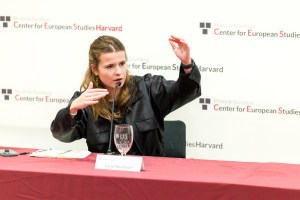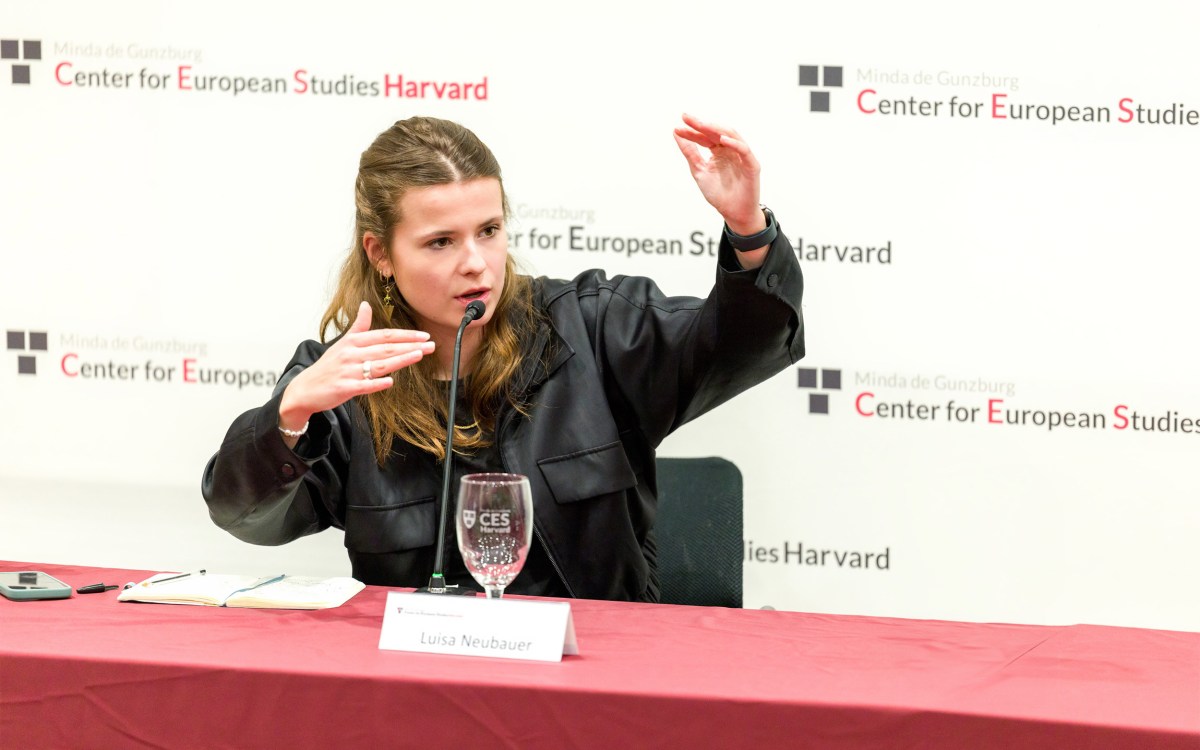A new master’s program
SEAS to offer degree in computational science and engineering
Harvard University will launch a master’s program in computational science and engineering (CSE) in the next academic year, with the aim of training leaders for a future in which large-scale computation and advanced mathematical modeling will propel innovation in fields from psychology to photonics.
The program, developed at the Harvard School of Engineering and Applied Sciences (SEAS), will begin accepting applications in the fall for enrollment in September 2013.
The one-year, master of science (S.M.) program will provide rigorous training in the mathematical and computing foundations of CSE, emphasizing the application of fundamental knowledge across the frontiers of natural and social sciences, the humanities, and engineering. Students will apply computation in independent research projects and elective courses.
Beginning in 2014, SEAS also will offer a two-year master of engineering (M.E.) program, with the second year devoted mainly to research.
“Our aim is to create distinctive master’s programs that are both intellectually rich and scientifically vital,” said SEAS Dean Cherry A. Murray. “It is essential that we provide the next generation of leaders with the heavy-duty computational skills to analyze real, complex systems. We want to equip our students with the confidence to dive into fundamental problems like medicine, climate modeling, and operational logistics, and with the skills to reshape the world for the better.”
The Harvard program will offer a curriculum broader than typical for master’s degrees in computational science, anchored by core courses in both computer science and applied mathematics, and embracing a range of applications, especially the social sciences. New master’s students will engage with faculty from disciplines across Harvard’s departments in the arts and sciences so that all students are exposed to ideas and applications from many disciplines.
The course of study points toward eight learning outcomes developed with leaders in industry and in national labs, as well as faculty across Harvard. An advisory board, formed by Murray in 2010 to help design the program, agreed that graduates should be able to model complex systems, evaluate and implement efficient computational solutions, and collaborate to design robust software, and analyze massive data sets, among other objectives. Core courses focused on these outcomes are already being offered to Harvard students, and are proving popular.
Advisory board member Jennifer Chayes, who is distinguished scientist and managing director of Microsoft Research New England and Microsoft Research New York City, said, “We at Microsoft Research New England very much look forward to deepening our collaboration and relationship with Harvard in this new endeavor. Many of the defining questions of this era in science and technology will be centered on ‘big data’ and machine learning. This master’s program will prepare students to answer those questions by integrating and applying computation and engineering with other disciplines, including both physical and social sciences.”
Jointly managed by SEAS and the Graduate School of Arts and Sciences (GSAS), the program grew out of the recently created Institute for Applied Computational Science (IACS) in SEAS. IACS taps the diverse intellectual strengths of Harvard for insight into how torrents of data and new technologies are transforming scholarship, and uses these insights in designing courses and student activities.
The institute’s first milestone was the launch last year of a secondary field, or graduate minor program, in computational science and engineering, available to students enrolled in a Ph.D. program in GSAS.
“In keeping with Harvard’s emphasis on foundational knowledge, the master’s program will focus on crosscutting mathematical and computational principles,” said Efthimios Kaxiras, the director of IACS and the John Hasbrouck Van Vleck Professor of Pure and Applied Physics in the Department of Physics and SEAS. “It will emphasize active learning, allowing students to implement and test these techniques in individual and collaborative projects in economics, physics, biology, and a range of other fields. This will prepare them to integrate critical knowledge in both industry and academic settings.”
Through their courses and projects, students who complete the program will acquire mastery of approaches that include mathematical techniques for modeling and simulation of complex systems; parallel programming and collaborative software development; and efficient methods for organizing, exploring, visualizing, processing, and analyzing very large data sets.




